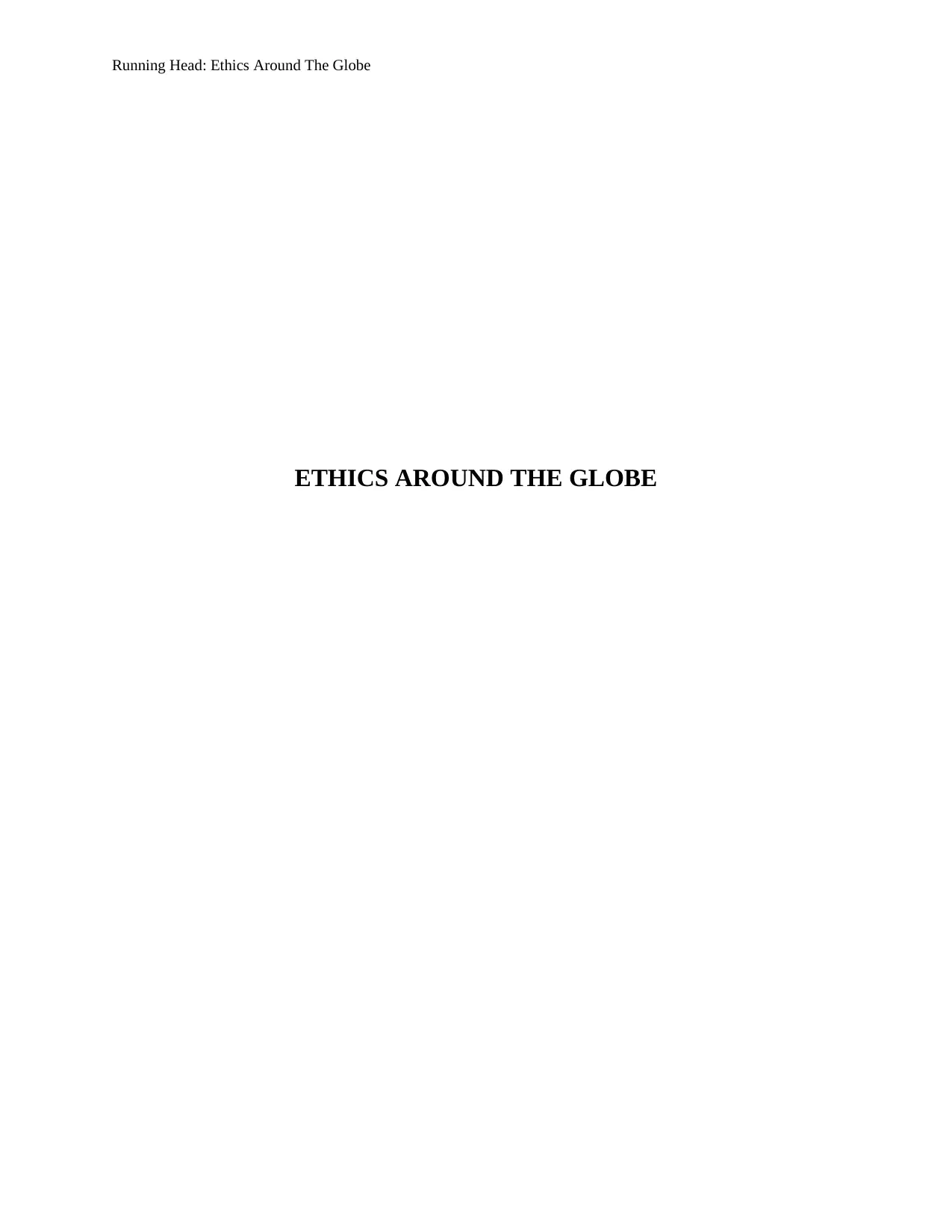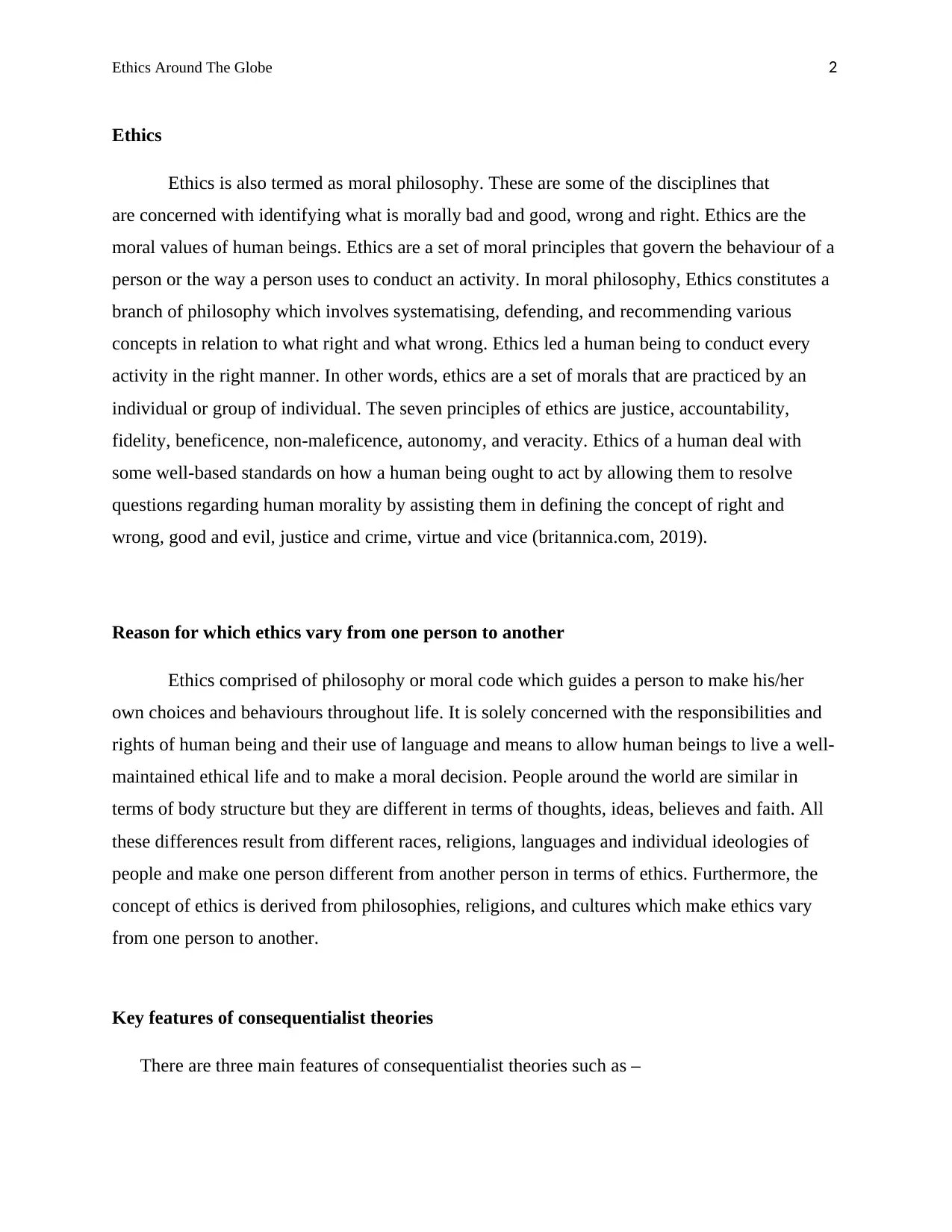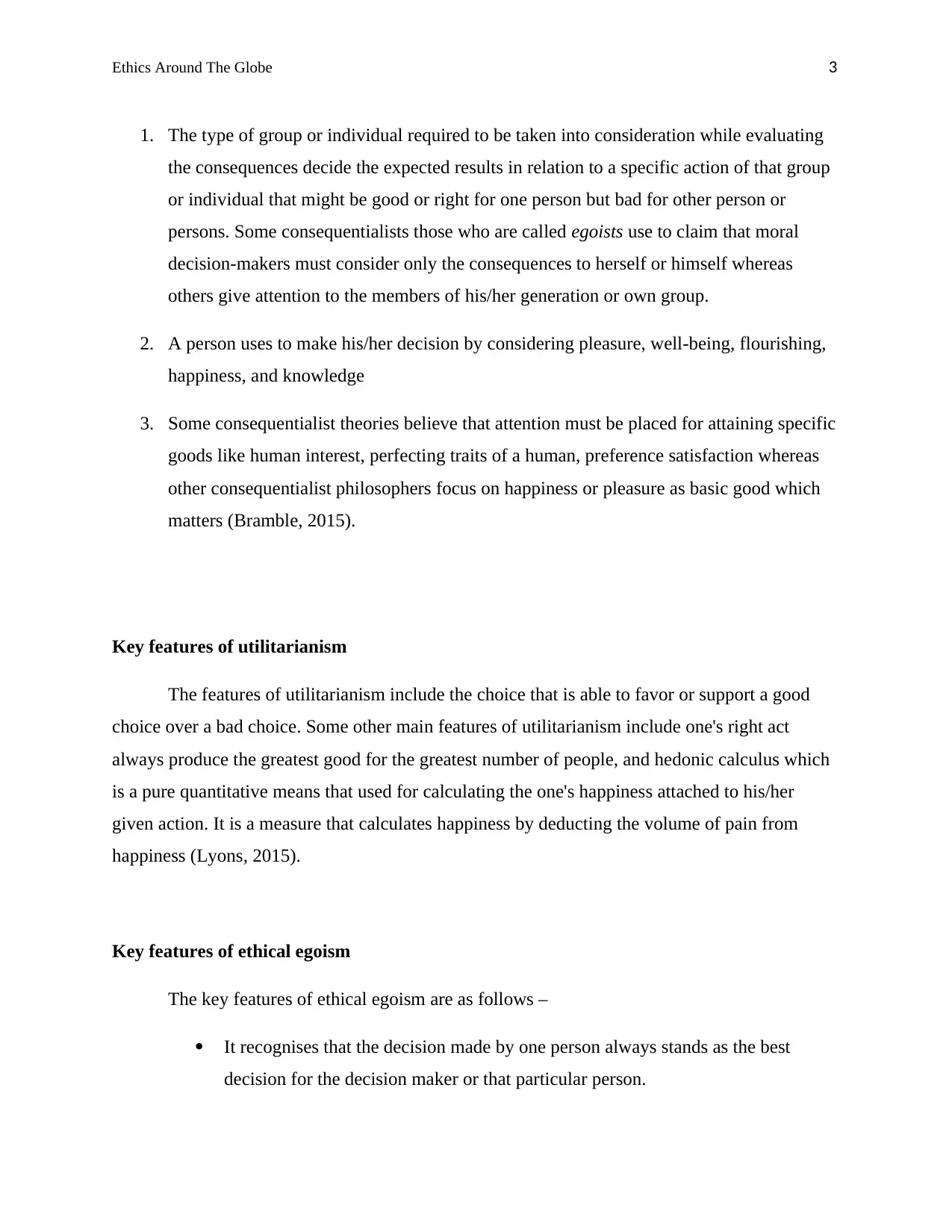Ethics Around the Globe: Exploring Ethical Principles and Theories
VerifiedAdded on 2019/09/22
|5
|1170
|327
Essay
AI Summary
This essay delves into the realm of ethics, also known as moral philosophy, exploring its fundamental principles and significance in guiding human behavior. It defines ethics as a set of moral values that influence how individuals and groups conduct activities, emphasizing the importance of making morally sound decisions. The essay discusses the variability of ethical perspectives across different cultures, religions, and individual ideologies, highlighting the influence of philosophy and culture on moral codes. It then examines consequentialist theories, outlining their key features, such as considering the consequences for specific groups or individuals, and the focus on achieving specific goods like happiness or well-being. The essay further explores utilitarianism, focusing on its emphasis on maximizing good for the greatest number of people, and ethical egoism, which prioritizes self-interest in decision-making. It concludes by contrasting utilitarianism and ethical egoism, elucidating their differing approaches to moral conduct and the implications of each in various ethical dilemmas. The essay provides a comprehensive overview of these concepts, offering a solid foundation for understanding the complexities of ethical considerations in a global context.
1 out of 5












![[object Object]](/_next/static/media/star-bottom.7253800d.svg)